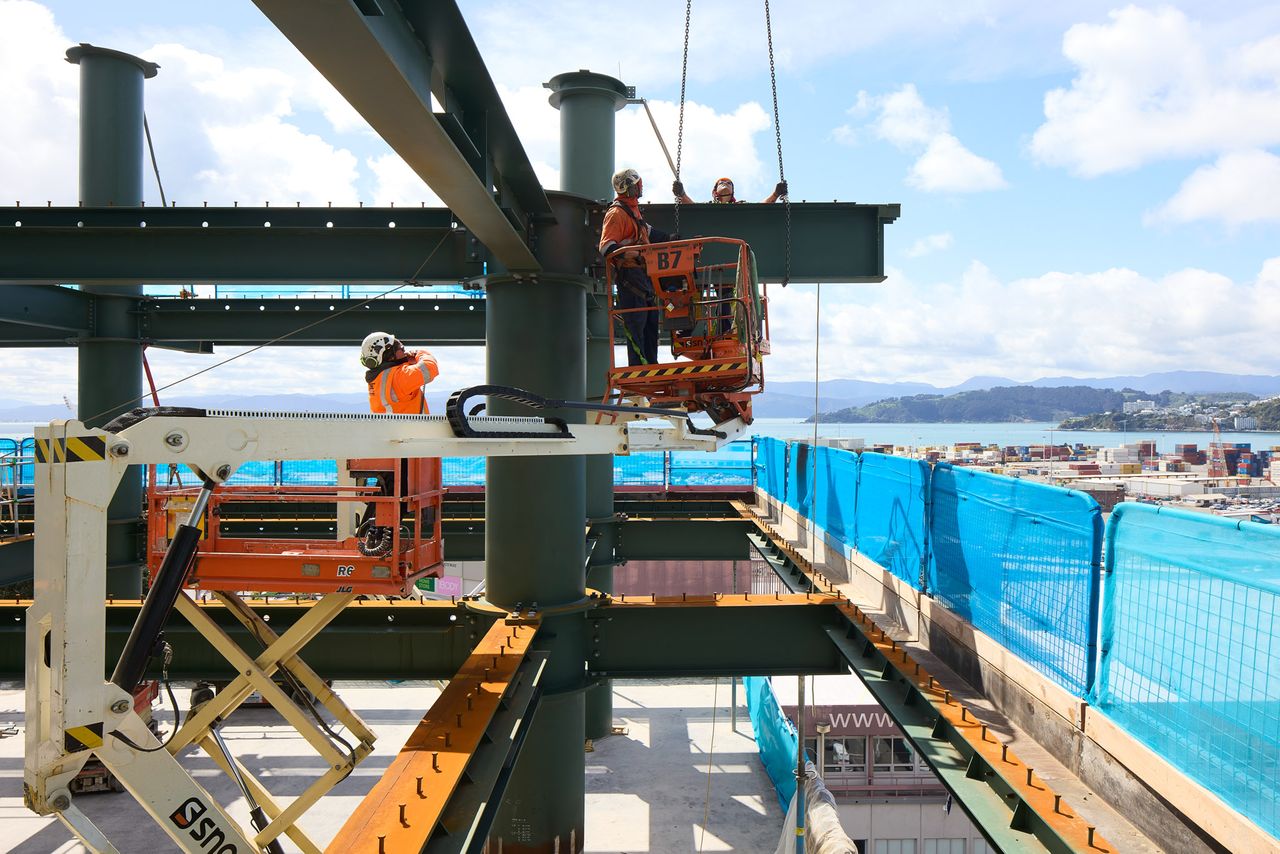News & Insights
The Dawn of A.I.
Author
Date
- 2023 September

In an era where artificial intelligence is either lauded as our salvation or our demise, its surging prominence deserves attention. The launch of ChatGPT, an A.I. model adept at simulating human dialogue with remarkable accuracy, has sparked both wonder and concern.
One sector experiencing a less noisy yet transformative impact from A.I. is construction. Here, the focus isn't merely on robots playing chess but on fundamentally redefining two critical elements of fostering a successful project: efficiency and knowledge.
Efficiency: The Seductive Siren
The construction industry is no stranger to overruns in terms of time and cost. Construction projects are a logistical nightmare – a whirling dance of contractors, consultants, consenting authorities, and stakeholders. This is where A.I., with its promise of margin-increasing efficiencies, shines as a seductive siren. Picture this: An A.I. platform capable of on-demand analyses of project data, labour productivity, material costs, and local climate conditions.
This isn't mere number crunching; it's predictive analytics that, when paired with human decision-making, has the potential to avoid delays, reduce costs, and increase information precision that even the most seasoned project manager would envy.
Here's the thing - these ideas aren't pipe dreams anymore. Companies, including RCP, are already integrating A.I. into their project management software and processes to perform these complex analyses and simulations. Gone will be the days when a project manager must wade through spreadsheets and documents to glean a holistic view. Instead, the data will come live and articulate itself into actionable insights. Theoretically, this means faster project completions, reduced costs, and happier stakeholders.
Knowledge Repository: The Akashic Records
The second monumental impact of A.I. lies in its ability to serve as a knowledge repository. Businesses are treasure troves of valuable insights gained from years of delivering complex projects. Yet, much of this knowledge is often untapped, residing in the minds of veterans or buried in outdated databases. Enter A.I., your modern Akashic Records, capable of storing, retrieving, and presenting knowledge on demand.
It's not merely about creating a centralised database but imbuing it with the intelligence to synthesise insights that can guide decision-making.
Imagine a scenario where the A.I. system recommends a particular approach based on a similar project completed ten years ago by the company, thus preventing a costly mistake. Suddenly, the wisdom of the past becomes a tactile asset for the present. When mundane tasks of scouring old records are automated, we can finally focus on tasks that we find essential and impactful, such as problem-solving and strategy.
A Cautionary Tale
Caution should be exercised, however.
A.I. should not become a crutch; reliance on past solutions could stifle creativity and make us resistant to fresh perspectives. Moreover, not all stored knowledge is timeless; some might be redundant or counterproductive in a rapidly evolving landscape.
On the one hand, we have the immense capabilities of A.I. to sort through complex data sets in the blink of an eye and offer insights on demand. On the other hand, these algorithms lack the experiential wisdom, creative intuition, and adaptability that human expertise offers.
Sometimes, the shortest path may not be the wisest. Therein lies the paradox.
A Balanced Future
So, where does this leave us?
A future where A.I. and human expertise coalesce rather than clash seems viable and necessary. The goal should be to create systems where A.I. amplifies human decision-making rather than replacing it; a system where A.I. encourages growth and innovation, rather than stymying it.
Management consultancy firms, especially those interfacing between the public and private sectors, are the perfect vanguards of this balanced approach. The sceptics among us caution against a blind plunge into A.I.led operations, and their concerns aren't just sentimental; they are existential. As we celebrate the glitz and glamour of algorithmic brilliance, let's not overlook the human genius that got us this far.
We're standing on the precipice of a new era, and our choices could now shape our industry for decades. It's crucial to walk the tightrope with technological ambition and humanistic restraint.
Remember, the future isn't just about building faster; it's also about building wiser.
A Future Carved in Silicon, Not Set in Stone
So, what does the future look like?
In the construction landscape, A.I. offers us an enticing vision of efficiency and wisdom. But we must approach this double-edged sword with both enthusiasm and reservation. Efficiency should not lead us into a cold, mechanised future devoid of human warmth. And while the knowledge repository holds a wealth of information, it should serve to complement, not replace, human intuition and creativity.
The real value of artificial intelligence is not in its ability to accomplish tasks but in its potential to be a partner in support of our endeavours. A well-balanced partnership with artificial intelligence could be the scaffolding for constructing a better future.
So, let's build wisely.
By Shaun Kao
We are making significant investments in Artificial Intelligence to improve service and project efficiency for our clients. If you'd like to discuss the use of A.I. in construction, contact Jeremy Hay or Andre Koolen.



